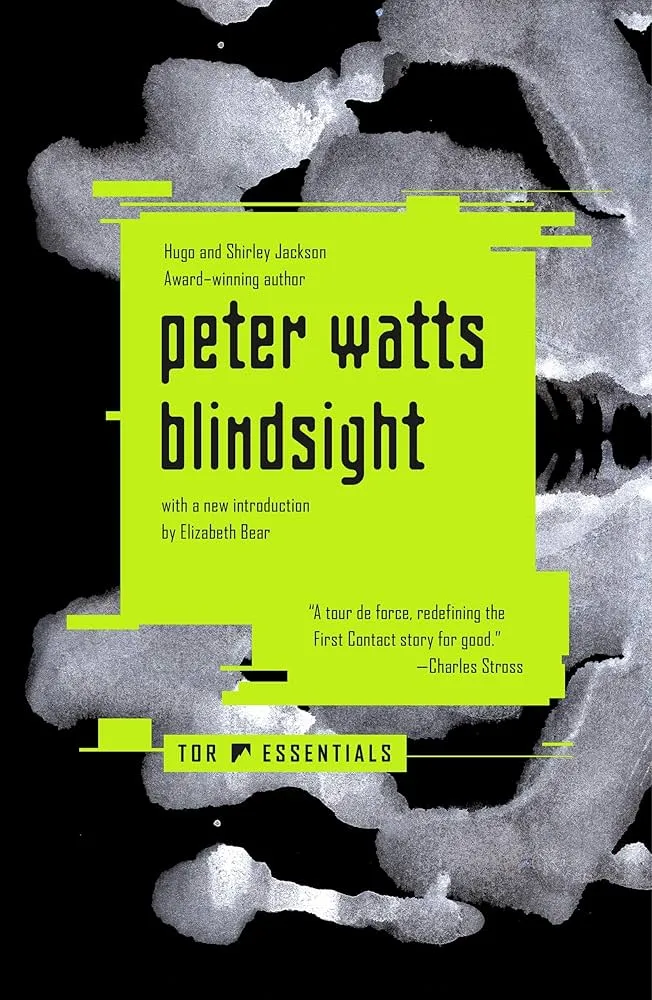Reading: Blindsight by Peter Watts

This past week I have been revisiting Blindsight by Canadian author Peter Watts. A few different sources around the web have been talking about its sequel, Echopraxia, and although I only read Blindsight earlier last year, I wanted to get back into the world before diving into the second book.
Blindsight, both then and now, is a fantastic read.
Every character, every interaction, every moment is steeped in questions about humanity, consciousness, thought, and identity. Part of the fun while reading has been trying to align each of Watts’ characters with an overarching theme: a “synthesist” with half a brain operates as a translator for experts to the lay-people of Earth; a linguist composed of four distinct personalities utilizes these partitioned identities to interpret data faster than any one-core brain; a vampire re-awakened from the Pleistocene leads the crew and interfaces with the artificial intelligence “Captain” that controls the ship.
Nearly every chapter introduces a new thought experiment for the reader. Early on, an alien intelligence seems to respond to the crew’s questions in perfect (even casual) English, but interrogation from the ship’s linguist determines that it is only a “Chinese Room”:
You stick some guy in a closed room. Sheets with strange squiggles come in through a slot in the wall. He’s got access to this huge database of squiggles just like it, and a bunch of rules to tell him how to put those squiggles together…
The point is, though, he doesn’t have any idea what the squiggles are, or what information they might contain. He only knows that when he encounters squiggle delta, he’s supposed to extract the fifth and sixth squiggles from file theta and put them together with another squiggle from gamma…
…you can use basic pattern-matching algorithms to participate in a conversation without having any idea what you’re saying.
If we can carry out seemingly meaningful conversations with entities that are only responding by rote, we have to draw a distinct line between our concepts of “intelligence” and “consciousness”. Even the book’s title refers to a studied (yet debated) state of blindness where brains react to stimuli that they cannot not consciously interpret; although the brain’s ability to process data has been severed, parts of it are still able to “see”. A character in the novel experiencing this blindsight is able to dodge a thrown object despite not knowing what it was or who threw it.
I’ve forgotten just enough from my last read that every page has been a turner, and I hope to keep up the momentum to dive directly into Echopraxia once I’m done.
Here’s to Canadian lit, and to sci-fi that gets you thinking after you put it down!